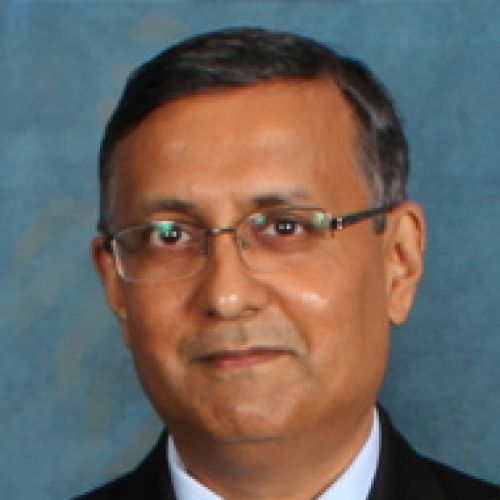Certified Management Accountant (CMA) Programme: Strategic Cost Management (Synchronous E-Learning)
- Innovation & Business Improvement
This programme is conducted online.
To use your SkillsFuture Credit, please submit your claim through our payment portal. Do not submit the claim manually via the SkillsFuture page. Please refer to our step-by-step guide here.
3 days
8.30am - 6pm
Who Should Attend
All participants should have a degree or professional qualification in accounting or an MBA from a reputable University.
For Certified Management Accountant (CMA) certification and membership, five years of relevant practical experience is required by the ICMA.
Applicants for membership will be required to provide a Curriculum Vitae detailing information of the business experience of significance to their application, e.g., work in reporting to management; financial management; information systems; financial modelling; internal auditing; pricing; logistics; cost analysis etc.
Individuals fulfilling the educational and experience requirements of the above membership categories may use the CGBA or CMA post-nominals after their name.
Overview
A management accountant applies his or her professional knowledge and skill in the preparation and presentation of financial and other decision-oriented information in such a way as to assist management in the formulation of policies and in the planning and control of the operation of the undertaking.
Management Accountants are seen as the "value-creators" amongst the accountants. They are much more interested in forward-looking and taking decisions that will affect the future of the organisation, than in the historical recording and compliance (scorekeeping) aspects of the profession.
Management accounting knowledge and experience can therefore be obtained from varied fields and functions within an organisation, such as data analytics, information management, treasury, strategic auditing, governance, marketing, valuation, pricing, and logistics, and other business areas.
The CMA Programme consists of two post-graduate level modules (7 day), namely:
- Strategic Cost Management (SCM) – 3 Days (one Module of 3-days)
- Strategic Business Analysis (SBA) – 4 Days (one Modules of two 2-day parts a & b)
When you successfully complete both modules (i.e., Module 1 and Module 2 a & b), you will have completed the educational requirements* for membership as a Certified Management Accountant (CMA) from the Institute of Certified Management Accountants (Australia & New Zealand).
*There is an experience requirement of a minimum of 5-years of relevant business experience.
The Institute of Certified Management Accountants (ICMA) is an Australian and New Zealand organisation focused on management accounting, it differs from other Financial Accounting societies: CPA Australia, Institute of Chartered Accountants of Australia, Institute of Public Accountants, due to this focus.
The Institute of Certified Management Accountants of Australia and New Zealand is committed to excellence in financial governance. We make a positive impact on society and the economy through strategic financial education, management accounting development and advocacy.
Learning Objectives
The aim of this programme is to further develop skills of analysis, evaluation and synthesis in the areas of cost and management accounting for associate members and, in the process, create an awareness of some current developments in the profession.
The Certified Management Accountant programme is not designed as one in which highly structured methods and rules are applied to various topics in order to find one "correct" solution or answer for problems or issues. Rather, it is more a possibilities quest, in which various controversial conceptual and practical issues will be reviewed and analysed, with due recognition to the reality of alternative value judgements. Given the history of recent developments in the profession and business practices, this approach to the study of the subject of management accounting is considered feasible and warranted.
Furthermore, evidence is available that in managerial accounting, procedures continue to evolve and develop. Much of this dynamic activity is in response to changing business practices and policies and the complexity of modern firms.
Topic/Structure
Strategic Cost Management is an advanced level course that covers the role of the management accountant in complex modern industrial organisations within which the various facets of decision-making and controlling operations take place. The course includes the discussion of management control systems, costing systems and activity-based costing, activity management, and implementation issues in modern costing systems.
Emerging issues that are vital to the modern value-creating accountant such as environmental, social, governance and empowerment issues are also covered. The course is designed to prepare students for careers as professional management accountants.
Synopsis:
Describe the basic conventions and doctrines of managerial and cost accounting and other generally accepted principles which may be applied in the contemporary cost management models.
Identify major contemporary issues that have emerged in managerial accounting.
Critically evaluate a number of issues relating to the design and implementation of cost management models in modern firms.
Explain the management accountant’s role in the implementation of cost management systems for product costing and decision-making purposes.
Topics:
Module 1: Strategic Cost Management
- Management Control Systems
- Lean Manufacturing and Quality Control
- Cost Accounting and Cost Management in a Lean Environment
- Life Cycle Costing Systems
- Benchmarking
- Activity-Based Cost Allocation Systems
- Customer Profitability Analysis
- Process Control and Activity-Based Management
- Implementing Cost Analysis and Control Systems
- Strategic Performance Management Systems
- Environmental and Social Management Accounting
- Strategic Governance and the Strategic Audit
Assessment
There is a compulsory assessment consisting of 25 MCQ questions at the end of each module. Those who wish to obtain the CMA grade of membership, there is an assignment in the form of a strategic corporate report for each module (3,000 words, including bibliography, notes, figures and tables) conducted by the Institute of Certified Management Accountants. The assignment must be submitted after one-month and within three-months of the end of each module. (w.e.f 1 Jul 2025)
Participants are required to attain a minimum of 75% attendance and pass the associated assessment in order to receive a digital Certificate of Completion issued by SMU Academy.
Calculate Programme Fee
Fee Table
| EMPLOYER-SPONSORED | |||
|
PARTICIPANT PROFILE |
SELF-SPONSORED |
SME |
NON-SME |
|
Singapore Citizen < 40 years old Permanent Resident LTVP+
|
$981 (After SSG Funding 70%) |
$381 (After SSG Funding 70% |
$981 (After SSG Funding 70%) |
|
Singapore Citizen ≥ 40 years old |
$381 (After SSG Funding 70% |
$381 (After SSG Funding 70% |
$381 (After SSG Funding 70% |
|
International Participant |
$3,270 (No Funding) |
$3,270 (No Funding) |
$3,270 (No Funding) |
All prices include 9% GST
Please note that the programme fees are subject to change without prior notice.
Post Secondary Education Account (PSEA)
PSEA can be utilised for subsidised programmes eligible for SkillsFuture Credit support. Click here to find out more.
Self Sponsored
SkillsFuture Credit
Singapore Citizens aged 25 and above may use their SkillsFuture Credits to pay for the course fees. The credits may be used on top of existing course fee funding.
This is only applicable to self-sponsored participants. Application to utilise SkillsFuture Credits can be submitted when making payment for the course via the SMU Academy TMS Portal, and can only be made within 60 days of course start date.
Please click here for more information on the SkillsFuture Credit. For help in submitting an SFC claim, you may wish to refer to our step-by-step guide on claiming SkillsFuture Credits (Individual).Workfare Skills Support Scheme
From 1 July 2023, the Workfare Skills Support (WSS) scheme has been enhanced. Please click here for more details.
Employer Sponsored
Enhanced Training Support for SMEs (ETSS)
- Organisation must be registered or incorporated in Singapore
- Employment size of not more than 200 or with annual sales turnover of not more than $100 million
- Trainees must be hired in accordance with the Employment Act and fully sponsored by their employers for the course
- Trainees must be Singapore Citizens or Singapore Permanent Residents
- Trainees must not be a full-time national serviceman
- Trainees are eligible for ETSS funding only if their company's SME status is approved prior to the course commencement date. To verify your SME's status, please click here.
Please click here for more information on ETSS.
Absentee Payroll
Employers who sponsor their employees for the course may apply for Absentee Payroll here. For more information, please refer to:
AP Guide (Non-SME Companies)
Declaration Guide (SME Companies)
Loading schedule information...
*Registration will close 5 calendar days before the course start date, or once the class is full, whichever comes first.







